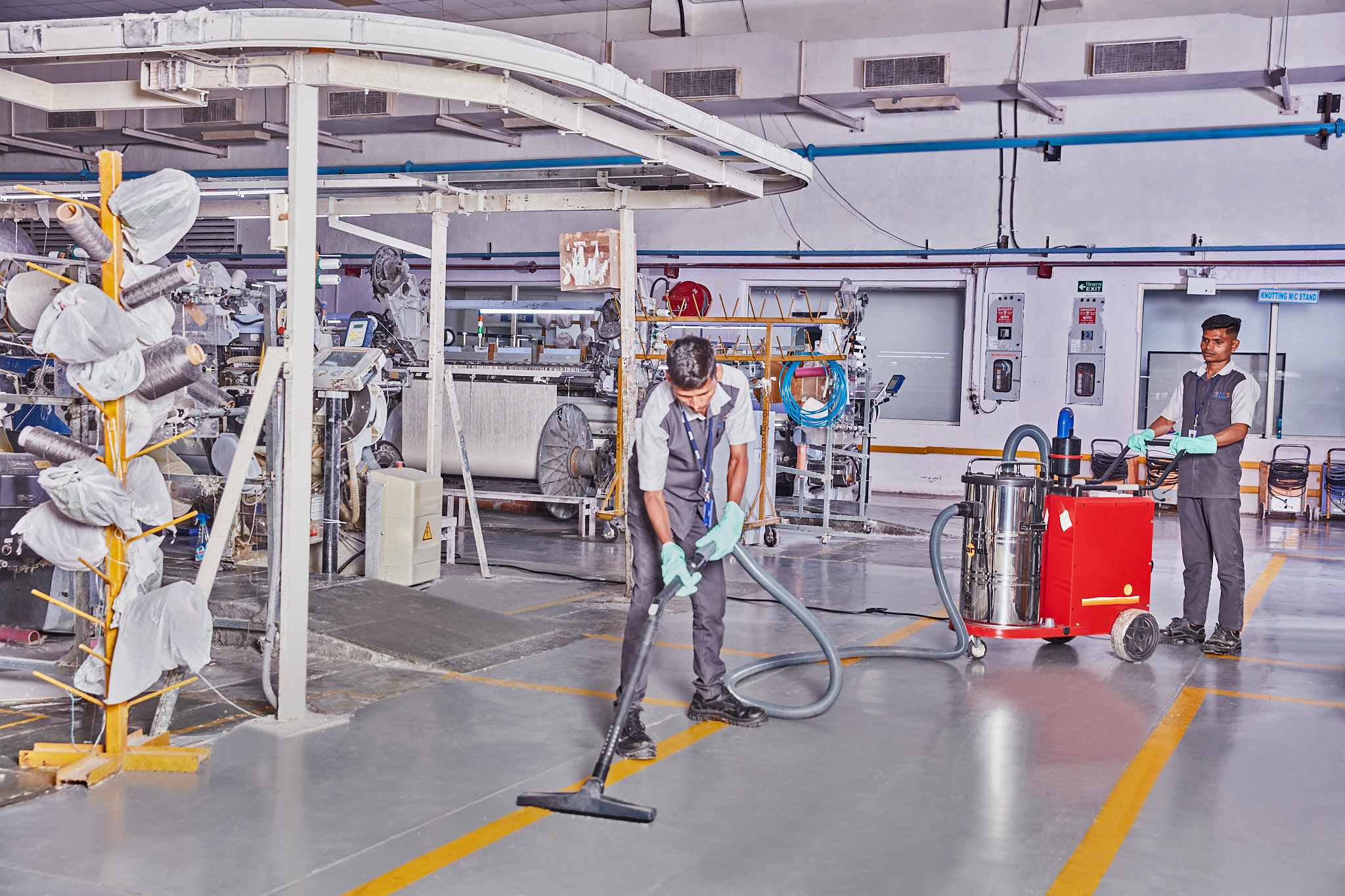India’s urban development story is no longer confined to metros. Tier-2 and Tier-3 cities such as Indore, Surat, Kochi, Bhopal, Lucknow, and Coimbatore are fast emerging as centers of industrial, commercial, and residential growth. As these cities expand, the demand for organized facility management solutions is growing rapidly. However, the challenges in implementing these solutions outside the metros are unique and multifaceted.
In this blog, we explore the specific hurdles in delivering facility management services in Tier-2 and Tier-3 cities and how innovative strategies and technologies can bridge the gap to ensure sustainable, efficient, and reliable operations.
The Growing Demand for Facility Management in Smaller Cities
Over the past decade, government initiatives like Smart Cities Mission, Make in India, and Digital India have catalyzed growth in Tier-2 and Tier-3 cities. This has led to:
- Expansion of commercial and industrial infrastructure
- Growth in IT parks, manufacturing hubs, logistics centers, and healthcare institutions
- Development of residential complexes and gated communities
With this growth, there is an increasing need for organized facility management companies to ensure hygiene, security, energy efficiency, and compliance—key to maintaining property value and user satisfaction.
Key Challenges in Tier-2 and Tier-3 Cities
1. Lack of Trained Manpower
Unlike metros, these cities often lack a readily available pool of trained professionals for services such as housekeeping, MEP (Mechanical, Electrical, Plumbing) maintenance, and soft services. This shortage affects service quality and consistency.
2. Limited Infrastructure Support
Smaller cities may face frequent power outages, limited water availability, poor waste disposal infrastructure, and underdeveloped public utilities, all of which place extra strain on facility services management teams.
3. Cost Sensitivity
Clients in Tier-2 and Tier-3 cities are often more cost-sensitive, which makes it challenging to offer premium services while maintaining margins. Facility management providers must innovate to deliver value without compromising on quality.
4. Lack of Awareness and Standardization
The awareness of the benefits of professional facility management solutions is still growing. Many organizations rely on in-house or informal service providers, which often leads to inefficiencies, non-compliance, and increased long-term costs.
5. Geographical Dispersion
Serving facilities spread across semi-urban or rural belts around these cities can be logistically challenging. Response times for maintenance and emergency services may be affected due to distance and infrastructure constraints.
How Modern Facility Management Solutions Are Tackling These Challenges
1. Tech-Enabled Service Delivery
Smart facility management companies are integrating technology such as IoT-based sensors, cloud-based platforms, and mobile apps to remotely monitor operations, schedule maintenance, track assets, and manage manpower. This reduces the need for constant on-site supervision and improves efficiency.
2. Training and Upskilling Local Talent
Investing in training programs to skill local youth not only fills the talent gap but also boosts employment. Companies like SILA have developed in-house training programs for housekeeping, electrical maintenance, and customer service tailored to regional needs.
3. Standard Operating Procedures (SOPs)
Standardizing services across locations ensures consistent quality. Whether it’s a mall in Coimbatore or a logistics park in Indore, SOPs enable centralized management with decentralized execution.
4. Sustainable and Localized Solutions
Smart facility services management involves tailoring strategies to local challenges. For example:
- Using solar-powered backup systems in areas with unreliable electricity
- Implementing water recycling in regions with water scarcity
- Using biodegradable cleaning agents aligned with green facility management goals
5. Hybrid Models for Cost Optimization
To deal with cost sensitivity, companies are adopting hybrid models that combine automation with human intervention. Predictive maintenance using IoT can reduce downtime and avoid costly repairs, while mechanized cleaning improves productivity with fewer resources.
Role of Facility Management in Infrastructure-Led Growth
Tier-2 and Tier-3 cities are seeing growth in the following sectors, where facility management solutions are critical:
- Healthcare Facilities: Cleanliness, waste segregation, and maintenance are vital for hospitals and clinics.
- Educational Institutions: Campuses need secure, well-maintained, and hygienic environments.
- Manufacturing Units: Routine maintenance, energy management, and compliance monitoring are essential.
- Retail and Malls: Require professional housekeeping, security, and HVAC maintenance.
- IT and Office Parks: Asset management, utility monitoring, and workspace hygiene boost productivity.
Why Choose Professional Facility Management Companies?
Many businesses in Tier-2 and Tier-3 cities are now realizing the advantages of outsourcing facility management:
- Improved operational efficiency
- Better resource optimization
- Regulatory compliance
- Consistent service quality
- Access to skilled professionals and technology
Professional providers offer bundled services, from housekeeping services India to technical operations, all managed through integrated systems—removing the hassle of coordinating with multiple vendors.
Future Outlook
The future of facility management in India lies in inclusive growth—reaching beyond metros and delivering value in emerging cities. As industries, real estate, and institutions expand into Tier-2 and Tier-3 markets, facility management companies must innovate to meet demand.
Government incentives for infrastructure development, combined with a rising awareness of hygiene, sustainability, and ESG standards, will further accelerate the demand for facility services.
Conclusion
The journey toward robust facility management in Tier-2 and Tier-3 cities is filled with challenges, but it is also filled with opportunities. By adopting tech-driven, standardized, and regionally adapted solutions, facility management companies can play a transformative role in supporting India’s next wave of urban growth.
Smaller cities are the future—and delivering top-tier facility services in these regions is not just a logistical need; it’s a strategic imperative.
Want to streamline operations across your facility in an emerging city? Discover how our facility management solutions can help you overcome local challenges and achieve operational excellence.
Which Approach is Right for You?
Both in-house and outsourced facility management solutions have their place. If your business demands complete control and customization, an in-house team may suffice. But for cost-efficiency, scalability, and expert-backed services, outsourcing is a smarter move.
The growing reliance on professional facility services management firms across India shows that companies are recognizing the long-term value of partnering with experts. Whether it’s office maintenance, industrial compliance, or housekeeping services in India, choosing the right solution can impact your bottom line.
About SILA –
A Real Estate platform driven by an entrepreneurial spirit.
Our businesses include Real Estate Services which offer Facility Management, and Real Estate Advisory. Our other business is Real Estate Development. We have a diverse client base in various sectors which include large Corporates, Real Estate Funds, Landowners and Developers.
Over the last decade, SILA has scaled efficiently, managing over 150 million square feet of assets, with over 22,000 employees pan India. The platform is backed by Norwest Venture Partners and Samara Capital Group in our Real Estate Services and Development arms, respectively.
SILA is one of the best property management companies in Bangalore, Mumbai, Delhi, Chennai, Hyderabad, Pune & more.
SILA is among the top facility management companies in India, offering comprehensive Facility management services. As a leading facility services management company, SILA provides tailored FM solutions, including housekeeping services in Bangalore. Leveraging our expertise, we ensure seamless property management for clients nationwide. Whether you require housekeeping agency support or specialized facility management solutions, SILA delivers excellence in every aspect of your Housekeeping services in India, property’s upkeep and maintenance. With a proven track record in Facility Management India, SILA continues to set benchmarks in efficient and sustainable property management.
Also Read: The Impact of Facility Management Solutions on Real Estate Asset Value
FAQs
1. What Are Facility Management Solutions?
Facility management services refer to a comprehensive set of processes and tools aimed at maintaining and improving the functionality, safety, and efficiency of buildings and facilities. These services combine various operations to enhance the performance of physical spaces, ensuring they meet the needs of both occupants and property owners while promoting sustainability and seamless operations.
2. Key Components of Facility Management Solutions
- Hard Services
- Soft Services
- Energy Management
- Space and Asset Management
- Technology Integration
- Security and Surveillance
- Compliance Management
- Workforce Management
3. What are the primary benefits of using Facility Management Solutions?
- Improved Efficiency
- Streamlined operations reduce downtime and optimize resource utilization.
- Cost Savings
- Preventive maintenance avoids costly repairs and energy-efficient solutions lower utility bills.
- Compliance Assurance
- Proper documentation and adherence to regulations reduce legal risks.
4. Who should consider adopting Facility Management Solutions?
Facility Management Solutions are ideal for:
- Commercial offices
- Residential complexes
- Industrial facilities
- Healthcare institutions
- Educational institutions
- Retail spaces
About Author -

Aniket Sheth
The insightful content in this blog is curated by Aniket Sheth, our esteemed Senior Vice President of Operations. With an impressive professional journey spanning over 13 years, Aniket has held key positions at prestigious brands, showcasing his exceptional leadership skills.
Aniket’s educational background is marked by an MBA from Cornell University, which laid the foundation for his successful career. He began his professional journey at EY in New York, contributing significantly to enhancing and implementing engagements for Fortune 500 companies.
Aniket’s strategic acumen, proficiency in asset management, and forward-thinking innovation have been instrumental in helping companies streamline their operations and achieve substantial cost reductions. His wealth of experience brings a unique perspective to the world of facilities management, making his insights invaluable for businesses seeking operational excellence.


